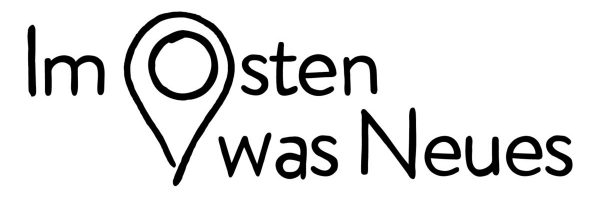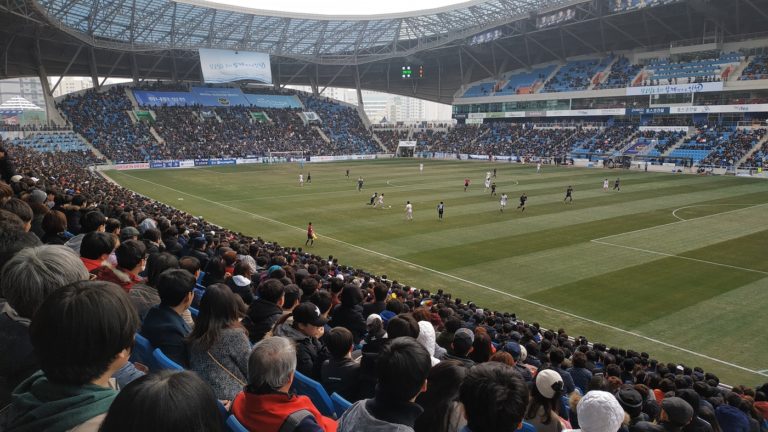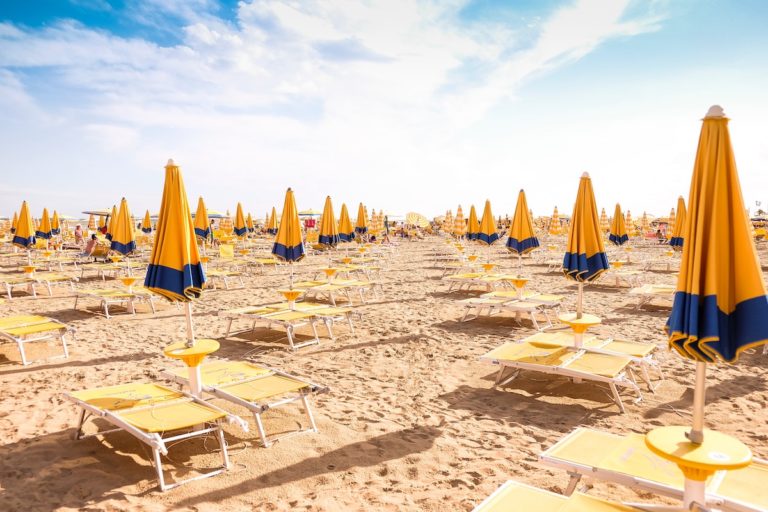A major reason for this blog to exist, is my participation in a training event that changes entire lifestyles. I would not dare to say everything changed for me, but it was a game changer: I moved to Berlin, started this blog and switched jobs. Many participants went through a similar process and started to do what they really care for.
To The Arc, personal growth is not limited to certain individuals. We just need the right training and especially commitment to dare challenging ourselves. Who are you and what do you want to stand for? How do you want to spent your days? What do you love and what makes you strong? What holds you back and where do you start to sweat? Those questions are challenging and The Arc intends to create a safe space to intensely reflect and act (!) with professional guidance.
I spent five days with 12 other people, three coaches and a psychologist in a rural Belgian house. Let me tell you those times were damn hard on a level I had never touched on before. As a sustainability enthusiast, I see The Arc to help me leverage my agency. If you are interested in my own story with the Arc, check the following video.
The Arc Training is said to be an enormously challenging, but a highly rewarding course with 30% being training and 70% being individual and group coaching. Its methodology is based on personal development and coaching theory, peer-to-peer education, personal feedback and social impact measurement. Read more about the training here.
Astrid Schrader founded The Arc many years back. In autumn 2018, six months after my 5-day training event, we met in Berlin. Read now about the story behind this marvelous concept, what her experience has been so far and what lays ahead. There’s also her won TEDx talk.
Interview with Astrid Schrader, The Arc
Astrid, what have you thought that the world was missing when you founded The Arc?
There is quite a story behind it. I had worked for years with many different youth organisations. In 2008 I was a UN Youth delegate and represented the German youth at the UN General Assembly. It was the same time that Lehman Brothers went bankrupt. I was really scared. The hallways of the UN were silent. People were whispering and diplomats were getting nervous about this upcoming financial crisis.
I was specifically nervous, because these guys were right when it comes to cutting budgets of youth organisations. We as the non-profit sector are not good at communicating our value. I thought many organisations would die und that is what actually happened years later on. A lot of money was redirected to other sectors.
So, I thought: what can I do? I was right out of university and basically at an age where you do not know much (laughs). The one thing I was really good at was organising trainings events. I had been a mediator, a certified trainer and coach. I was like: “Wow, that’s what I can do!”. I asked myself whether I can coach people. Can I actually inspire people?
What does the world need? Survival in that sector is a lot about communication. Having an inspiring person at the top of NGOs is essential for the team and simultaneously very practical to get funding for projects. That was indeed the motivation: we do not need another training in fundraising, time and project management. There is a need a training that makes a real difference! That, to me, was the most effective way to help organisations.
Looking back, the main target group of your training has changed.
Indeed. We started with leadership levels of youth organisations at the time. We actually did not know what to expect so at worst our participant would have fun. I mean, we started unbelievably high expectations. What we wanted to achieve was insane (laughs).
We asked ourselves at first: “What does it take to be inspiring?”. Well, to our understanding it is when you start to leave your comfort zone. You trust your dream more than you trust your fear. So, essentially you need to know three things:
- What is the point where you start to sweat?
- What is the big dream?
- What is your worst fear?
What is your worst fear?
Personally, my worst fear is rejection. When someone rejects The Arc I suffer a lot, because it is essentially me.
So, we started with those mentioned NGOs, but what happened was that many participants skyrocketed after the event. Six, seven months later they would call us like “We won a prize!”, “Our organisation has a new sponsor!”, “We realized crazy fundraising!”. We were flabbergasted! They wanted to send their teams, siblings and friends. All asked: “Can we do it again”? So, we did.
Nowadays we concentrate – though not exclusively – on entrepreneurs. No matter the sector. We are beginning to understand they have the same issues.
On your homepage you ask: “Who do you dare to be?”. So, who do YOU dare to be?
First of all, you should know I am full of fear. People call me a very courageous person, but I am super scared. I used to be really scared teenager. My mum at some point asked me: “Don’t you think it’s time to go to a discotheque under-aged”? (laughs). I never broke any rules and had a hard time to express my feelings and desires.
Essentially, I try to listen to those hidden fears within me and try to challenge them. The fears are becoming more interesting, obviously. At the UN I was really scared to speak in front of all those member states! Nowadays it is big pitches or workshops with experienced senior managers. Of course, there is a voice telling me this is very scary. Those fears, nevertheless, are just stories you are telling yourself about potentially bad things.
You are not letting anyone just join an Arc training, but ask them if they are ready for it. Can you explain that?
The Arc supports and challenge its participants simultaneously. It is about really big things in your life that you are being coached through. Those might be things you do not know about. Often at our trainings, challenges surface. Having said that, this only works if people are courageous enough to tell themselves that they have a challenge. I talk to people who want to join and simply ask: “What’s your challenge?”. I then get half an hour of “I don’t have a challenge…, I know all my challenges…”. That is fine, but maybe it is not the time for The Arc.
Other times people are like “I don’t know”, or “there is this one little thing…”. What is happening is that shame talks out of them. I believe that there must be something when they are calling. You do not just call such programme out of the blue. Would you call the doctor telling him you are fine?
Shame is a beast in the process. If people are not daring to admit to themselves that they have a challenge, there is no way we can support them. You might not be able to pinpoint your challenge. That is fine as long as you are open to explore. If you believe, that there might be bottleneck, it is totally fine! Bring curiosity and dare.
Shame is a beast in the process. If people are not daring to admit to themselves that they have a challenge, there is no way we can support them.
Have you ever experienced that someone was not challenging him- or herself?
To my understanding, we are structured by nature as curious beings. It did happen that people joined at the wrong time. Sometimes it does not pop, as you might not be strong enough. Maybe you talked to the wrong person. It boils down to the question I mentioned a few times now: “Are you curious enough?”.
That brings me to the methodology. How long did it take you to set up the programme?
Twenty minutes! I literally wrote it down in twenty minutes. I regret that I do not have that paper any more. It was a fun moment of realisation what needed to be done: a training based on an attitude level. It does not convey knowledge, but the attitude that will turn you to a winning person. Once I had admitted that to myself, it worked out. The basic structure still stems from those twenty minutes. We held the first Arc in 2012. We, of course, adjust the program according to each group. We throw out some methods and substitute them for others. The core remains: it is the spirit and vibe.
We actually have people joining more than once. Although they know what is happening, it always feels very different every time. You bring new bottlenecks, or maybe you have not succeeded, yet.
Everyone who went to The Arc remembers especially one very important and long night during the training. It is an intense experience that changes life. How many times did you have to go through this experience?
12 times! It is crazy how much it changes you. Every damn time. What should be mentioned, who is not familiar with us, is: we as coaches test everything on ourselves. We go through these really intense exercises ourselves. I would say we have literally become our own product. We are the result of our product!
If you ask yourself where am I bullshitting myself several times a year… that leaves an astonishing mark. I have learnt to live on the edge of my comfort zone. Breakthroughs are relatively easy to me now. We started much more community work these days as many participants continue to struggle. That is just normal, but we would like to do more.
What is the community work that you do?
Basically, we organise training events. Participants go through an intense experience and as a result of this get clarity what their vision is. To be fully honest, this is where it stopped so far! We were a bit unsatisfied with that: people go home after a few life-changing days and fall back into daily traps. You are lapsing back into old patterns. Our participants tell us how much they are afraid to return to reality.
We tried out many community ideas, but were never happy with them. In 2015 we sat down and asked ourselves: “What would be really amazing to have?”. What we have at The Arc is the intense connection between people. They are ridiculously committed to supporting each other. And so, the “Arc Fest” was born.
At The Arc Fest, we invite all former participants to a location in Europe to celebrate life. Celebrate self-love. Our second Arc Fest happened this year’s summer in Valencia: we had dinners with flower crowns, black-white parties, amazing workshops and yoga. People were amazed by this opportunity.
We are happy with it and will continue to experiment. An online programme is being created at the moment as well.
How is The Arc running? Is it economically feasible?
Well, I always struggle as my goals are really high (laughs). Luckily, we are not threatened financially. We do not make losses any more, which has much to do with amazing people volunteering. Since the idea has grown into such a large network, it is just impossible for The Arc to stop. I would continue running it, even if I it meant not earn any cent with it.
What is struggling is to still find products that are just as flabbergasting as our intense The Arc. We are a bit unfair to our own products, as the bar set is unbelievably high. We are trying to launch, but it is a struggle.
Astrid, in the beginning I asked what the world was missing. After this interview, I believe it is space to grow. Would you agree on that?
Yes, indeed.
Thank you, Astrid.




